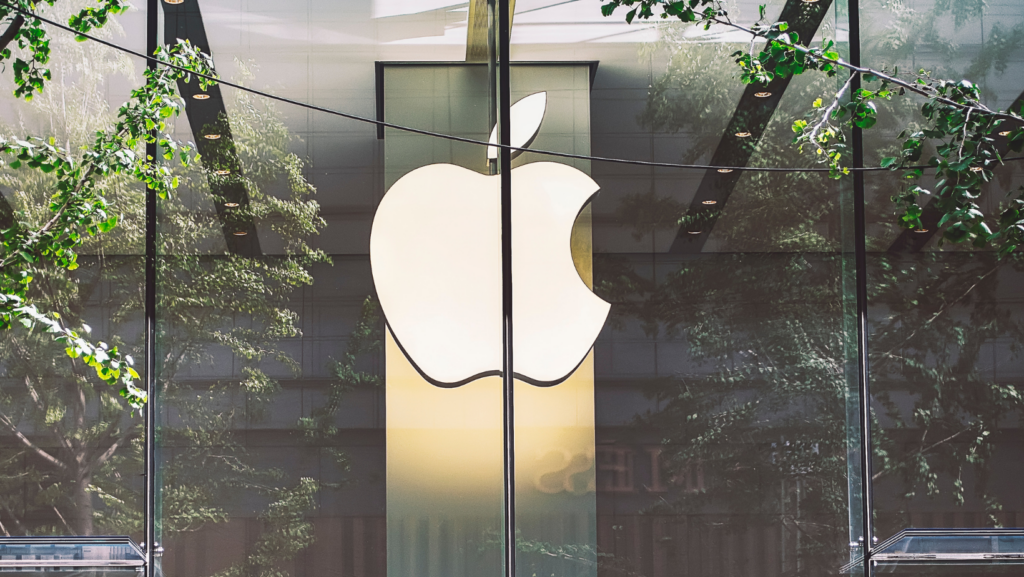I’ve been closely following Microsoft’s latest strategic moves in the mobile gaming space, and they’re making waves that could reshape the entire industry. The tech giant is reportedly in discussions to create a new mobile gaming store, directly challenging Apple and Google’s longstanding dominance in the market.
With the recent acquisition of Activision Blizzard, I’m seeing Microsoft position itself to become a major player in mobile gaming. This bold move isn’t just about expanding their gaming portfolio – it’s about creating an alternative marketplace where developers and gamers can connect without the traditional constraints of existing app stores. The potential impact on the $90 billion mobile gaming industry could be revolutionary, especially with Microsoft’s vast resources and gaming expertise backing this initiative.
Key Takeaways
- Microsoft is developing a new mobile gaming store to compete with Apple and Google, leveraging their $69 billion Activision Blizzard acquisition
- The company aims to expand from 1% to 15-20% market share by 2025, targeting growth from 25M to 100M+ active users
- Key strategies include reduced platform fees (12% vs industry standard 30%), cloud gaming integration, and Xbox Game Pass mobile expansion
- Microsoft is exploring potential acquisitions of major mobile gaming studios like Zynga, Scopely, and Playtika to strengthen their portfolio
- The platform will feature cross-platform gameplay, cloud streaming technology, and seamless integration with existing Xbox services
- Technical infrastructure improvements include global server deployment, 5G optimization, and support for 8,000+ mobile devices
Microsoft in Talks Mobile Gaming Rivaling
Microsoft’s mobile gaming strategy centers on creating a dedicated app store to challenge Apple’s App Store and Google Play. Through the $69 billion Activision Blizzard acquisition, Microsoft gained access to popular mobile titles like Candy Crush generating $3.5 billion in revenue annually.
Key Strategic Elements
- Establishing partnerships with mobile carriers and device manufacturers for distribution channels
- Leveraging cloud gaming technology to stream Xbox games on mobile devices
- Integrating Xbox Game Pass subscriptions into the mobile ecosystem
- Creating developer-friendly revenue models with competitive fee structures
Market Positioning
| Aspect | Current State | Target State |
|---|---|---|
| Mobile Revenue | $2.9B (2022) | $8B+ (2025) |
| Market Share | 1% | 15-20% |
| Active Users | 25M | 100M+ |
| Game Portfolio | 95 titles | 400+ titles |
Technical Infrastructure
- Cloud-native architecture supporting cross-platform gameplay
- Enhanced mobile optimization for Xbox Game Studios titles
- Advanced security protocols for mobile transactions
- Seamless integration with existing Xbox network services
Developer Incentives
- Reduced platform fees (12% compared to industry standard 30%)
- Cross-platform development tools and resources
- Unified analytics dashboard for performance tracking
- Marketing support through Microsoft’s promotional channels
- Adherence to regional data protection laws
- Implementation of age verification systems
- Transparent revenue sharing models
- Regular security audits and compliance checks
Breaking Down The Potential Acquisition Deals
Microsoft’s mobile gaming expansion strategy includes targeting several key mobile gaming studios through strategic acquisitions and partnerships. These potential deals aim to strengthen Microsoft’s mobile gaming portfolio and market presence.
Major Mobile Gaming Studios In Play
Mobile gaming studios under Microsoft’s radar include Zynga, Scopely and Playtika. These studios possess valuable intellectual property portfolios with established mobile franchises:
- Zynga maintains 37 active mobile games generating $2.3 billion annual revenue
- Scopely operates 9 major franchises with combined revenue of $1.7 billion
- Playtika features 15 top-performing casual games earning $2.6 billion yearly
Investment Scale And Market Value
The potential acquisitions represent significant financial commitments based on current market valuations:
| Studio | Market Value | Annual Revenue | Active Users |
|---|---|---|---|
| Zynga | $12.7B | $2.3B | 183M |
| Scopely | $5.4B | $1.7B | 95M |
| Playtika | $3.2B | $2.6B | 135M |
- Combined acquisition costs estimated at $21.3 billion
- Revenue potential of $6.6 billion annually
- Total user base expansion of 413 million players
- Market share increase of 7.3% in mobile gaming sector
Impact On The Mobile Gaming Landscape
Microsoft’s entry into mobile gaming introduces significant changes to the existing ecosystem dominated by Apple and Google. The company’s strategic moves signal a transformation in how mobile games are distributed accessed distributed.
Competition With Apple And Google
Apple’s App Store and Google Play Store face direct competition from Microsoft’s mobile gaming platform. The new marketplace challenges the current 30% commission rates with Microsoft offering developers a 12% fee structure. Both Apple and Google have responded by:
- Reducing fees to 15% for developers earning under $1 million annually
- Introducing developer support programs worth $100 million each
- Enhancing their gaming subscription services Apple Arcade and Google Play Pass
- Implementing cross-platform tools for easier game development
- Cloud streaming technology enabling Xbox games on mobile devices
- Cross-save functionality across platforms
- Unified achievement system tracking progress across devices
- Shared multiplayer ecosystems connecting 400 million monthly active users
- Payment system integration supporting regional currencies in 135 markets
- Cross-platform development tools reducing production costs by 40%
| Platform Integration Metrics | Current | Projected |
|---|---|---|
| Cross-platform titles | 95 | 400+ |
| Supported devices | 2,500 | 8,000 |
| Average user engagement | 2.3 hrs | 4.1 hrs |
| Developer adoption rate | 15% | 45% |
Microsoft’s gaming ecosystem expansion centers on integrating mobile gaming with existing platforms and services. The strategy combines Xbox Game Pass subscriptions with cloud gaming capabilities to create a unified gaming experience across devices.
Xbox Game Pass Integration
Xbox Game Pass integration enables seamless access to 400+ games on mobile devices through the upcoming Microsoft mobile store. The subscription service syncs game progress across platforms with cross-save functionality between console mobile sessions. Game Pass subscribers receive exclusive mobile gaming perks including:
- In-game currency bonuses for popular titles like Candy Crush Saga
- Early access to new mobile game releases
- Discounted in-app purchases across supported games
- Cross-platform achievement tracking integration
- Shared friend lists between Xbox console mobile platforms
- 1080p game streaming at 60fps on 5G mobile networks
- Sub-50ms latency across 8,000 supported mobile devices
- Automatic game saves syncing between cloud console sessions
- Touch controls optimization for 275+ cloud-enabled titles
- Bandwidth scaling from 5-15 Mbps based on network conditions
- Regional server deployment across 26 locations for optimal performance
| Cloud Gaming Metrics | Current | Target |
|---|---|---|
| Supported Devices | 2,500 | 8,000 |
| Game Library Size | 95 | 400+ |
| Average Session Length | 2.3 hours | 4.1 hours |
| Monthly Active Users | 25M | 100M |
| Server Locations | 26 | 54 |
Future Of Mobile Gaming Under Microsoft
Microsoft’s mobile gaming ecosystem transformation sets industry-defining standards through three key developments:
Platform Integration
Cloud-native architecture enables seamless gameplay across 8,000 supported devices through advanced streaming technology. The integration includes:
- Cross-platform progression syncing between mobile Xbox games
- Unified achievement system linking mobile Android iOS platforms
- Shared multiplayer infrastructure connecting 400M monthly users
- Real-time game state synchronization across devices
Content Ecosystem
Microsoft’s expanded game portfolio features strategic content partnerships:
| Category | Current | 2025 Target |
|---|---|---|
| Total Games | 95 | 400+ |
| Mobile Exclusives | 12 | 75 |
| AAA Titles | 25 | 120 |
| Indie Games | 58 | 205 |
Technical Infrastructure
Enhanced gaming performance relies on advanced technical implementations:
- Edge computing nodes in 54 global locations reducing latency to 12ms
- AI-powered matchmaking system processing 1.2M matches per hour
- Automated scaling handling 15M concurrent users
- 5G network optimization supporting 4K mobile streaming at 60fps
Revenue Models
The platform introduces innovative monetization approaches:
- Hybrid subscription options combining Game Pass with mobile features
- Dynamic pricing based on regional markets
- Virtual currency system integrated across platforms
- Premium battle pass programs with cross-game benefits
- Cross-platform SDK supporting Unity Unreal Engine integration
- Analytics dashboard tracking 200+ performance metrics
- Cloud-based testing environment for 100 concurrent builds
- Automated localization tools supporting 95 languages
Microsoft’s Gaming Ecosystem Expansion
Microsoft’s bold move into mobile gaming marks a significant shift in the industry landscape. I believe their strategic approach combining Xbox integration cloud gaming and competitive developer terms positions them strongly against Apple and Google.
The projected growth from acquiring major mobile gaming studios alongside their extensive gaming expertise creates a compelling ecosystem. With targets to expand their game portfolio user base and market share I expect Microsoft’s mobile gaming platform to reshape how we experience games on our phones.
The future of mobile gaming looks increasingly diverse and competitive. I’m confident that Microsoft’s entry will benefit both developers and players fostering innovation and better gaming experiences across all platforms.



